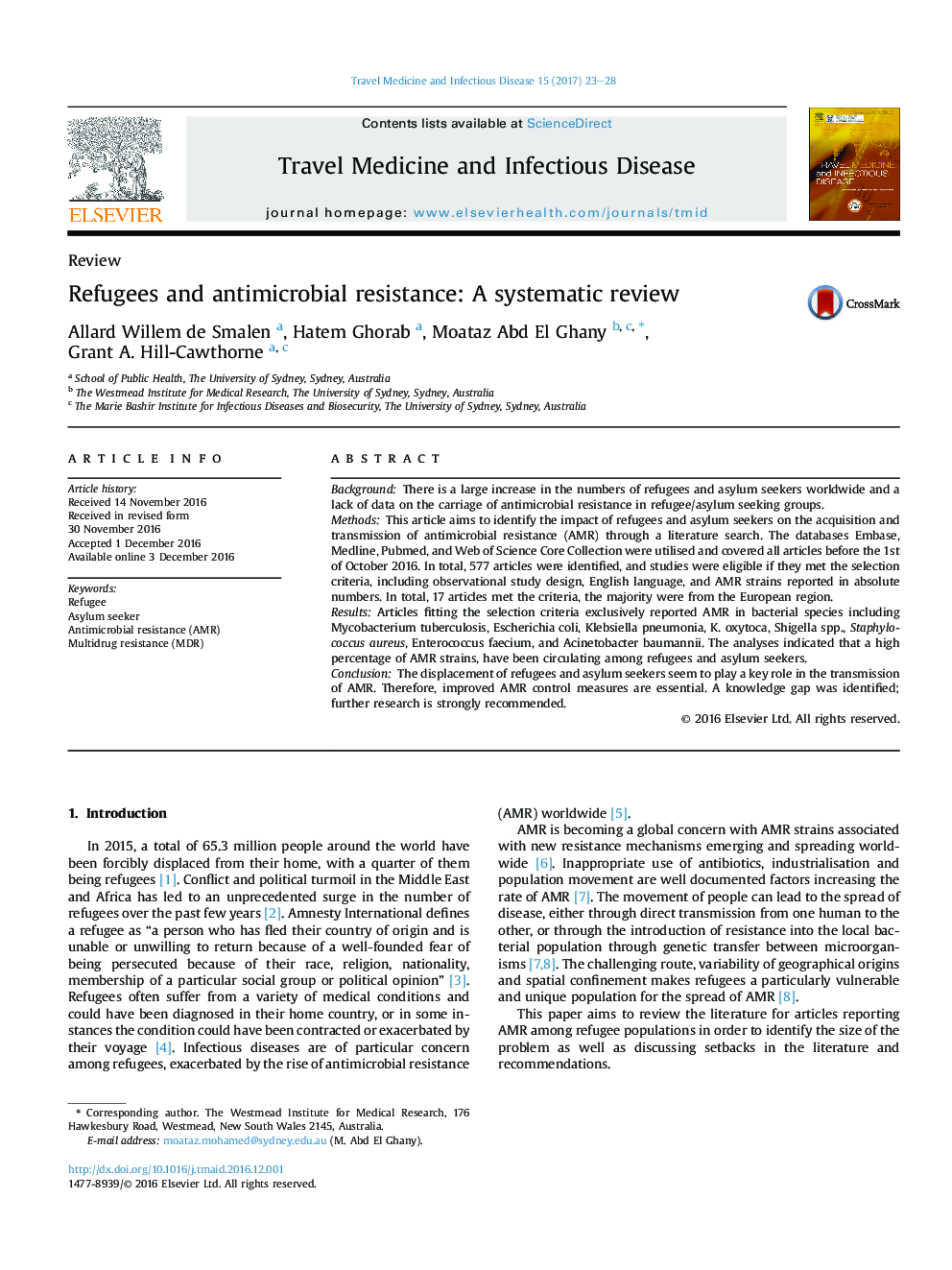| Article ID | Journal | Published Year | Pages | File Type |
|---|---|---|---|---|
| 5670596 | Travel Medicine and Infectious Disease | 2017 | 6 Pages |
BackgroundThere is a large increase in the numbers of refugees and asylum seekers worldwide and a lack of data on the carriage of antimicrobial resistance in refugee/asylum seeking groups.MethodsThis article aims to identify the impact of refugees and asylum seekers on the acquisition and transmission of antimicrobial resistance (AMR) through a literature search. The databases Embase, Medline, Pubmed, and Web of Science Core Collection were utilised and covered all articles before the 1st of October 2016. In total, 577 articles were identified, and studies were eligible if they met the selection criteria, including observational study design, English language, and AMR strains reported in absolute numbers. In total, 17 articles met the criteria, the majority were from the European region.ResultsArticles fitting the selection criteria exclusively reported AMR in bacterial species including Mycobacterium tuberculosis, Escherichia coli, Klebsiella pneumonia, K. oxytoca, Shigella spp., Staphylococcus aureus, Enterococcus faecium, and Acinetobacter baumannii. The analyses indicated that a high percentage of AMR strains, have been circulating among refugees and asylum seekers.ConclusionThe displacement of refugees and asylum seekers seem to play a key role in the transmission of AMR. Therefore, improved AMR control measures are essential. A knowledge gap was identified; further research is strongly recommended.
